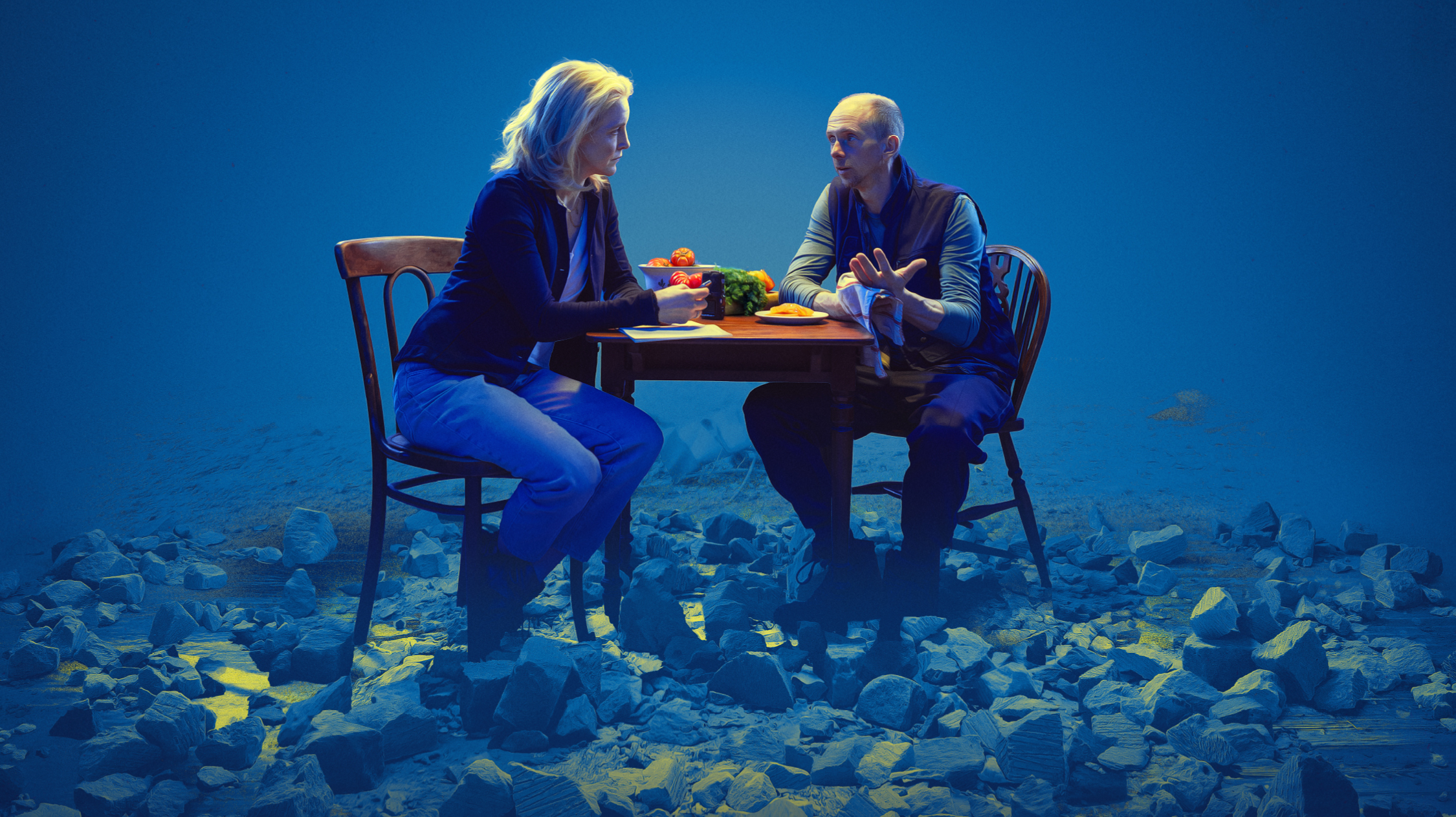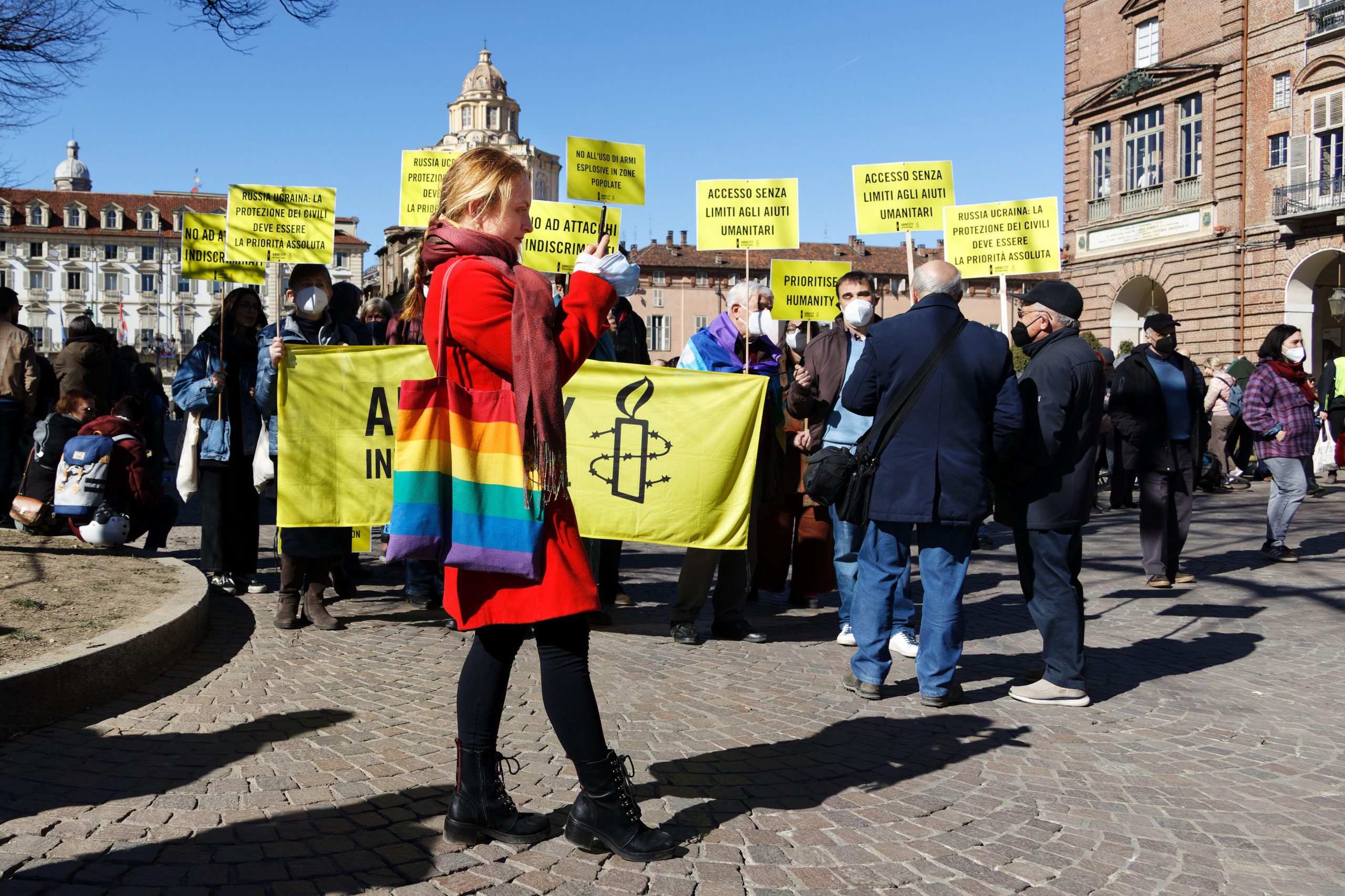Stanislav Samutsevich, 73, is the father of the imprisoned Pussy Riot member, Ekaterina Samutsevich. She, together with Nadezhda Tolokonnikova and Maria Alekhina, was sentenced to two years in the women’s prison colony on charges of hooliganism motivated by religious hatred after performing an anti-Putin protest songin Moscow’s Christ the Saviour Cathedral.
While the mother of Maria Alekhina has refused to talk to any journalists, and the parents of Nadezhda Tolokonnikova live far from Moscow, Samutsevich is active in speaking out to support his daughter. He regularly addresses human rights activists and Russian intellectuals in order to rally support for his daughter and her friends.
“I don’t want people to think of them as some fools (…) that is the picture of them Russian TV provides,” he says.
In an interview with Index on Censorship he explained how his daughter became one of the country’s most famous political prisoners.
Index: If you were the judge, how would you sentence Pussy Riot?
Stanislav Samutsevich: It’s strange for me to judge other people. I understand that protest in the form of a punk prayer was shocking for people who don’t know much about the art of activism, but nothing in their performance warranted criminal prosecution. According to the Russian Administrative Code it is punishable by a fine of 1000 rubles. Besides, Ekaterina didn’t participate in it — the cathedral guards seized her before she got to the Ambion (an elevated platform in Orthodox churches). Law enforcement authorities are actively searching for the other members of Pussy Riot. Membership in itself is now classed as criminal activity.
Index: Ekaterina once said that the investigator demanded that you testify against the band in order to see her while she was in pre-trial detention. Is this true?
Stanislav Samutsevich: I would never give the testimony authorities demanded. But I did speak to investigator Artyom Rachenkov sincerely. I told him that when Ekaterina was arrested, I knew little about Pussy Riot. I thought my daughter — a silent little girl — had been influenced by bad company, particularly that of Nadezha Tolokonnikova. Only some time later did Ekaterina explain to me that the band has no leaders ; all of the members have equal rights. She said they did not like that Pyotr Verzilov, Tolokonnikova’s husband, was being referred to as the band’s producer. Tolokonnikova herself disapproved of this. But the investigator didn’t warn me that our talk was actually an interrogation. I didn’t expect him to enter it into the record, and I refused to confirm what I had said while on trial.

Members of Pussy Riot perform
Q: Did you support the creative and political activities of your daughter and her friends?
Stanislav Samutsevich: I argued with Ekaterina about feminism — until the moment she called me a dinosaur and a reactionary. But I do support the purpose of their punk prayer. The merger of church and state is very harmful to Russia’s development.
Index: Ekaterina graduated from Moscow Institute of Energy, worked in a top research centre where she programmed the arms system of Russia’s nuclear submarine “Nerpa”, and easily could have continued working for the state. Why did she turn against the government?
Stanislav Samutsevich: I thought my daughter’s future would be peaceful, working as a programmer in Russia. But her job required long business trips to Vladivostok, in the opposite corner of the country. She had to travel there alone and stay for at least two years — a young girl with hundred of sailors around. Neither of us wanted this. However, her work gave her a clear picture of how devastated Russian science was. Maybe if the government cared about science, Ekaterina wouldn’t have felt the need to protest against its policy.
Index: Ekaterina is 30 years old and a little bit older than the other women in Pussy Riot, so she remembers the times of Perekstroika. How did you explain it to her at the time? Her protest was done in line with the values of Perestroika.
Stanislav Samutsevich: I didn’t. Her mother, who died in 2001, and I both worked in research institutes, but I lost my job. We didn’t live then; we just tried to survive. I don’t think she thought of Perestroika much during Pussy Riot performances. It’s just that the young people perceive reality more sharply than older people.

Madonna showing support for Pussy Riot during a recent concert in Moscow
Index: Why do you think Pussy Riot had more vocal support in Western countries than in Russia?
Stanislav Samutsevich: People in Russia see freedom of speech differently from people abroad. You can express concerns without threat of criminal prosecution in the West. In Russia people are more likely to exercise a type of self censorship, due to a common feeling that criticism is damaging for the state. I think that most Russian musicians felt jealous after Madonna and other popular foreign musicians showed support for Pussy Riot. Russian musicians know that making statements supporting the opposition might harm their careers. Yuri Shevchuk had his concerts cancelled after asking Putin why the opposition was not allowed to hold peaceful rallies in Triumphalnaya Square. Concerts are the main source of income for musicians. Finally, most Russian musicians consider themselves to be part of high society and dislike the idea of solidarity with “hooligans”.
Index: Have you been able to see your daughter after the verdict? Maria Alekhina wrote that after the verdict, bailiffs were very rude and rough.
Stanislav Samutsevich: When I tried to wave at her, a court guard told me: “I will tear your hand off”. Since the verdict, I have met her twice. The authorities say she will be sent to the colony in Mozhaysk. Ekaterina was scared of the prospect, but said she will endure it. Fortunately, she doesn’t complain of bad attitudes among the guards anymore.
Index: If you were to meet Vladimir Putin and Patriarch Kirill, what would you say to them?
Stanislav Samutsevich: I don’t think they are very interested in my opinion. But I would say that the prosecution of Pussy Riot is a big mistake, and very harmful for the state and the church. I have a strong feeling that the prosecution was initiated by the Patriarch. But I don’t have anger towards them. Putin, for example, is just a symbol of a sick system.
Index: At the March of Millions opposition rally on 15 September, what will you be chanting for, apart from “Free Pussy Riot”?
Stanislav Samutsevich: I will not chant. I do want the release of Pussy Riot, but it is impossible in today’s Russia.





